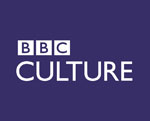If you’ve ever had a hankering to see a jaunty Broadway show about someone who hires prostitutes so that he can lop off their limbs with a chainsaw, then you’re in luck: a musical based on Bret Easton Ellis’s American Psycho is previewing in New York in March.
It’s not the craziest subject for an evening of toe-tapping entertainment: the title characters in Sweeney Todd and The Phantom of the Opera are both serial killers, after all. But when Ellis’s novel was published in 1991, nobody would have believed that such a controversially gruesome book would one day be the source of a Tony contender.
A virtuosic commentary on conspicuous consumption in the 1980s, American Psycho is a darkly funny first-person account of an investment banker’s decadent lifestyle, which ranges from cocaine-fuelled nights out at Manhattan’s most expensive restaurants to the murders he describes in similarly minute detail.
Its detractors loathed it, and even its fans would agree that its anti-hero, Patrick Bateman, is one of the most unsavoury creations in literary history. So what does it say about us that we’re now willing to whistle along to his depravity? Have we inched closer to Bateman’s way of thinking over the past 25 years? Or has the story told in Ellis’s novel been diluted with each subsequent retelling? The answer is somewhere in between.
Looking back, it’s quite touching to recall that in the early 1990s, something as highbrow as a novel – rather than a video game, a rap album or an ill-considered tweet – could have prompted such outrage, but American Psycho was headline news. Completed when Ellis (like Bateman) was just 26, it was condemned as misogynistic pornography by feminist authors, Gloria Steinem and Kate Millett included.
Read the full article here.






